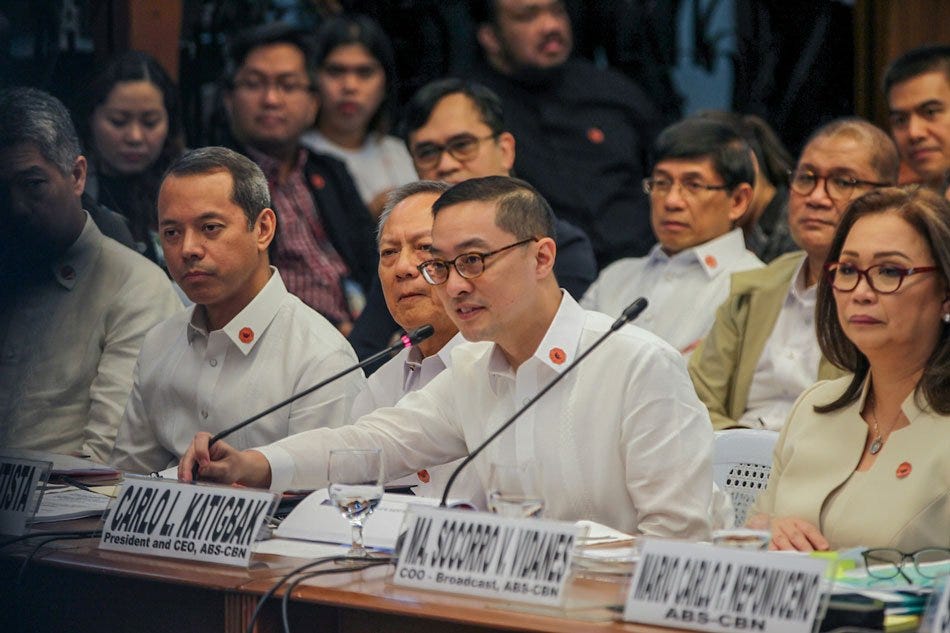Duterte Drubs Broadcast Network, Endangering Press Freedom
ABS-CBN president issues humiliating apology in quest to keep license

The humiliating apology by Carlo Katigback, the president and CEO of the Philippine broadcast network ABS-CBN (above) to Rodrigo Duterte before the Senate on February 24 is the latest demonstration of the president’s political clout against the press and his enemies.
It’s uncertain what that means for press freedom in the Philippines and whether ABS-CBN …
Keep reading with a 7-day free trial
Subscribe to Asia Sentinel to keep reading this post and get 7 days of free access to the full post archives.
